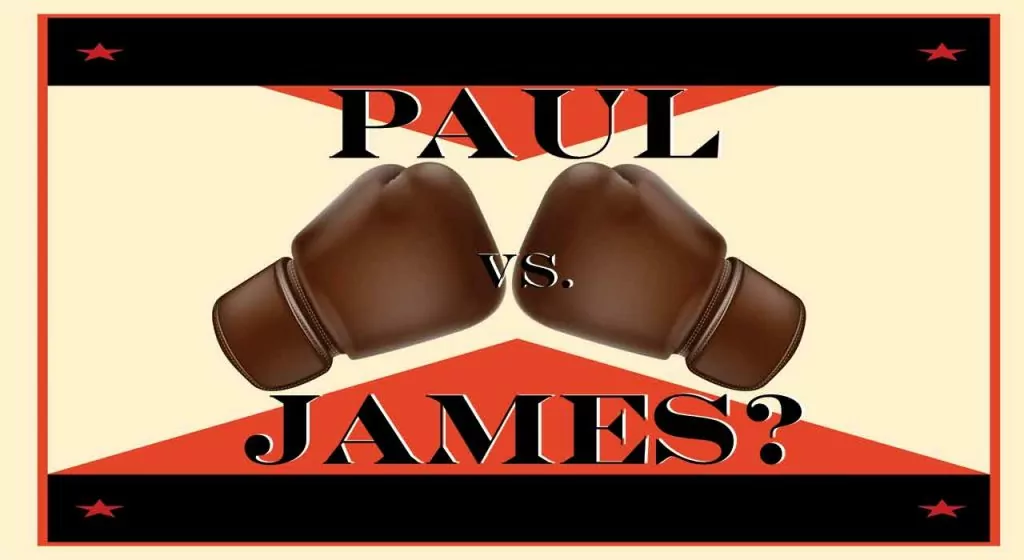Many Christians admire C.S. Lewis (1898-1963) and enjoy his writings. I was introduced to C.S. Lewis through my Grade 4 teacher who read The Lion, the Witch, and the Wardrobe out loud to us. I was hooked. Shortly thereafter I went out and bought my own set of the complete Chronicles of Narnia. That just got me started. I’ve long enjoyed his imagination and literary style and I’m by no means alone.
But his influence goes further. He was a well-known and persuasive advocate for Christianity. Many people claim to have become Christians through the writings of Lewis. Books like Mere Christianity and Miracles are still widely-read and touted as powerful tracts promoting Christian truth. He was one of the most influential Christian apologists of the twentieth century. But what should a Reformed believer think about his method? Can we make use of his writings in Reformed apologetics?
Some background
Lewis was born in Ireland, but spent most of his life in England. He was a professor of English at Cambridge University. He wasn’t trained as a theologian, but did study and briefly teach philosophy. He’d been an unbeliever for much of his young adult life. He writes about this in his spiritual autobiography Surprised by Joy:
I was at this time living, like so many Atheists or Antitheists, in a whirl of contradictions. I maintained that God did not exist. I was also very angry with God for not existing. I was equally angry with Him for creating a world.1
In the early 1930s, Lewis abandoned his atheism and professed to be a Christian. He became a member of the Church of England.
Today many Christians believe C.S. Lewis to have been an orthodox, evangelical believer. However, it’s important to realize that Lewis had some serious theological problems.
For example, he didn’t hold to the inerrancy of the Bible. In his book Reflections on the Psalms, he insists that the imprecatory psalms (like Psalm 137) are “devilish.” In Mere Christianity, he affirms some form of theistic evolution.2 In the same book, he writes about the possibility of Buddhists belonging to Christ without knowing it:
“…A Buddhist of good will may be led to concentrate more and more on the Buddhist teaching about mercy and to leave in the background (though he might still say he believe) the Buddhist teaching on other points.”3
There are more such issues. On the basis of some of his statements, one might even wonder to what extent C.S. Lewis really understood the biblical gospel of Jesus Christ. For myself, I’m not sure.
One thing that is certain is that Lewis has had a huge influence. In the last few years, this is definitely because of the Chronicles of Narnia books being made into films. As mentioned earlier, there are many people who claim to have become Christians because they read a book by C.S. Lewis like Mere Christianity or Miracles. Let’s briefly look at those books and the method Lewis uses.
Mere Christianity
Mere Christianity was originally a series of radio talks. It was an attempt by Lewis to argue for a basic (‘mere’) form of the Christian faith. Early in the book, Lewis uses the moral argument for the existence of a deity. He says that because there is moral law, there must be a law-giver. That law-giver must be a deity. At that point, he wasn’t arguing for the Christian conception of God, but only a generic divine being. His method becomes clear in what he says here:
We have not yet got as far as the God of any actual religion, still less the God of that particular religion called Christianity. We have only got as far as a Somebody or Something behind the Moral Law. We are not taking anything from the Bible or the Churches, we are trying to see what we can find out about this Somebody on our own steam.4
Lewis was thus trying to reason to God apart from any revelation from God. He was asking readers to independently judge the existence of God on the basis of the arguments presented. This method is found elsewhere in Mere Christianity as well.
Lewis tries to build up his case bit by bit. Eventually he gets to the question of what should his readers think about Jesus and his claim to be God:
I am trying here to prevent anyone saying the really foolish thing that people often say about Him: “I’m ready to accept Jesus as a great moral teacher, but I don’t accept His claim to be God.” That is the one thing we must not say. A man who was merely a man and said the sorts of things Jesus said would not be a great moral teacher. He would either be a lunatic – on a level with the man who says he is a poached egg – or else he would be the Devil of Hell. You must make your choice. Either this man was, and is, the Son of God: or else a madman or something worse. You can shut Him up for a fool, you can spit at Him and kill Him as a demon; or you can fall at His feet and call Him Lord and God. But let us not come with any patronizing nonsense about His being a great human teacher. He has not left that open to us. He did not intend to.5
That’s a brilliant piece of writing, often quoted. You’ll sometimes hear it condensed down to the idea that people have to decide whether Jesus was Lord, liar, or lunatic. Yet note again that people are called to judge. You have to judge the claims of Jesus.
C.S. Lewis wrote another book entitled God in the Dock: Essays on Theology and Ethics. In that book he gets to the heart of the problem with his own approach in parts of Mere Christianity. He writes:
The ancient man approached God (or even the gods) as the accused person approaches his judge. For the modern man the roles are reversed. He is the judge: God is in the dock…The trial may even end in God’s acquittal. But the important thing is that Man is on the bench and God in the dock.6
That’s exactly what Lewis did in Mere Christianity. He allowed man to judge God. He flattered the unbeliever. Lewis gave him a position of authority over God. That method was and is not unique to C.S. Lewis. Many others before and after him have done exactly the same thing. I should also note that it can sometimes be persuasive. These types of arguments can work to get people thinking about the Christian faith, and maybe even convince them. However, just because they work doesn’t mean they’re right or pleasing to God.
Miracles
In his book Miracles, we do find Lewis using a different method at times.7 He discusses the philosophy of naturalism, the idea that nothing exists besides nature. Against naturalism is supernaturalism, which allows for the existence of other things outside of nature, and therefore also allows for the existence of miracles.
Lewis starts off by rightly noting how the disagreement between the naturalist and the supernaturalist over miracles is not merely about facts. One needs to spend time considering the philosophy of facts held by each side. Lewis is saying that presuppositions matter. He writes,
The result of our historical enquiries thus depends on the philosophical views which we have been holding before we even began to look at the evidence. The philosophical question must therefore come first.8
That could have been said by Reformed theologians like Herman Bavinck or Cornelius VanTil. Lewis recognizes that people have pre-existing philosophical commitments which must be exposed and discussed.
So when it comes to naturalism, Lewis does exactly that. He does an internal critique of this philosophy and how it fails to account for logic, morality, and science. To illustrate, let’s just briefly look at what he says about naturalism and logic or reason.
Lewis demonstrates that the naturalist cannot consistently hold to his position without undermining reason itself. His philosophy cannot account for reason and cannot support reason. Even though the naturalist tries to talk highly of reason, he actually destroys it. This is because our reasoning powers are not explainable with naturalism. Naturalism is materialistic – all that exists is matter. But what is reason? Is reason material or non-material? Because reason is non-material, naturalism cannot account for it, we have no way for knowing whether it’s true, and our reasoning has no legitimacy. Lewis writes:
A theory which explained everything else in the whole universe but which made it impossible to believe that our thinking was valid, would be utterly out of court. For that theory would itself have been reached by thinking, and if thinking is not valid that theory would, of course, be itself demolished. It would be destroyed by its own credentials. It would be an argument which proved that no argument was sound…which is nonsense.9
Naturalism collapses under its own weight when it comes to reason. Later in the book, Lewis shows that naturalism also collapses when it comes to morality and science.
Instead of naturalism, Lewis argues that supernaturalism can account for everything. While he doesn’t get to the point of affirming that only the Christian worldview’s supernaturalism can account for everything, he comes close. Elsewhere in his writings, he did reach that conclusion. There is this famous quote from his book The Weight of Glory:
Christian theology can fit in science, art, morality, and the sub-Christian religions. The scientific point of view cannot fit in any of these things, not even science itself. I believe in Christianity as I believe that the Sun has risen, not only because I see it, but because by it I see everything else.10
That is very well said – completely in line with Psalm 36:9, “For with you is the fountain of life; in your light do we see light.” Indeed, only Christianity can consistently account for everything. Christianity is true because of the impossibility of the contrary. Lewis didn’t always consistently work with this method, but when he did, he used it to great effect
At the end of the day, Lewis is worth reading, not only to see some wrong ways of doing apologetics, but also to learn to use some right ways — and brilliantly. Moreover, if you have non-Christian friends, reading Lewis with them might be a great way to bring Christian truth to bear on their lives. If you do that, I’d recommend Miracles over Mere Christianity.
Endnotes
1) C.S. Lewis, Surprised by Joy, New York: Walker and Company, 1955, 170.
2) C.S. Lewis, Mere Christianity, London: Fontana Books, 1952, 181ff.
3) Lewis, Mere Christianity, 173.
4) Lewis, Mere Christianity, 35.
5) Lewis, Mere Christianity, 52-53.
6) C.S. Lewis, God in the Dock: Essays on Theology and Ethics, ed. W. Hooper (Grand Rapids: Eerdmans, 1970), 244.
7) For this section on Miracles, I am indebted to an unpublished paper by Daniel R. Dodds, “Elements of Transcendental Presuppositionalism as Found in the Works of C.S. Lewis.”
8) C.S. Lewis, Miracles, New York: Fount Paperbacks, 1947, 8.
9) Lewis, Miracles, 18-19.
10) C.S. Lewis, The Weight of Glory, 1980, 92
Dr. Bredenhof blogs at yinkahdinay.wordpress.com where this first appeared.












